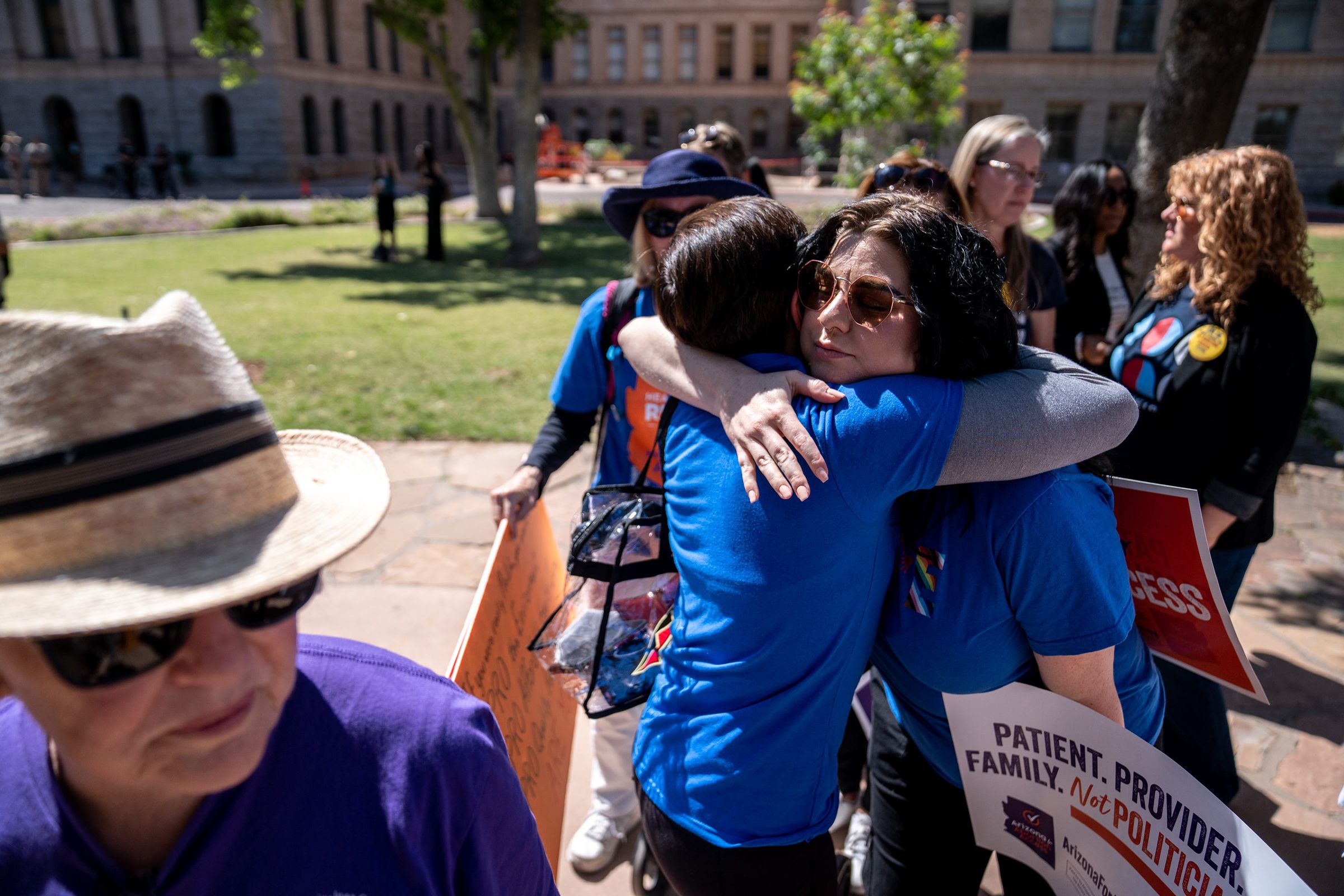In a shocking turn of events, Arizonans are set to live under an abortion law that harks back to the era when Arizona was a frontier territory, predating even the invention of the light bulb and antibiotics. This is due to a recent ruling by the state’s Supreme Court.
This law is reminiscent of the one Supreme Court Justice Samuel Alito referred to in the majority opinion that overturned Roe v. Wade in 2022. Alito’s majority opinion highlighted the lack of acknowledgment in Roe of the consensus of state laws in effect in 1868, the year the 14th Amendment was ratified.
The 14th Amendment was the basis for the 1973 court decision that established a woman’s constitutional right to an abortion until the fetus was viable outside the womb. The 2022 court, citing laws like Arizona’s frontier law, stripped away this national right.
The Impact of Civil War-era Laws on the Dobbs Decision
Laws from the 1860s, like those in Arizona, enacted before women in the US had the right to vote, played a significant role in leading the 2022 Supreme Court to conclude that a right to abortion is not deeply rooted in the Nation’s history and traditions. The Dobbs v. Jackson Women’s Health Organization decision that replaced Roe resulted in a shift from the 1970s perspective of women’s rights to the 1860s view of state rights.
The Dobbs decision has created a patchwork of access, dividing states into those that uphold abortion rights and those that ban abortion. The decision by Arizona’s state Supreme Court to revert to the 1864 law is the latest manifestation of this complex fallout.
Trump’s Stance: Let the States Decide
Former President Donald Trump endorsed this patchwork approach to abortion access, promising to respect states’ decisions if reelected. This may be an attempt to neutralize a key political issue in the upcoming presidential election and in individual states like Arizona.
Arizona’s Republican-appointed Supreme Court upheld the old law, stating that the state legislature “has never affirmatively created a right to, or independently authorized, elective abortion.” However, the decision has been stayed for 14 days.
Arizona’s Political Landscape
Arizona’s Republican-controlled legislature now faces the challenge of finding common ground with its Democratic governor, Katie Hobbs, who described the abortion decision as marking “a dark day in Arizona.” She urged Republicans to repeal the 1864 law. However, state House and Senate leaders, Ben Toma and Warren Petersen, both support the 1864 law and were active in this court case.
The 1864 law would ban nearly all abortions, except to save the life of the mother, in this key political battleground. It also carries a prison sentence for abortion providers. However, the state’s Democratic attorney general has stated that her office will not enforce it.
Abortion: A Key Political Issue
Supporters of abortion rights in Arizona claim to have gathered enough signatures for a November ballot measure to amend the state’s constitution and establish a “fundamental right” to abortion in the state, modeled on Roe v. Wade. The issue of abortion will also be on the ballot in Florida, another battleground state, where the state’s Supreme Court recently upheld a ban on abortions after six weeks of gestation.
Voters in both states will have the opportunity to overturn these decisions in November. In Arizona, this would mean overturning a law from their frontier past. Advocates for women’s health are warning of immediate repercussions in both states as women face the prospect of suddenly losing access to care.
The abortion issue is divisive among Republicans in Arizona and nationally. While state House and Senate leaders support the 1864 law, Kari Lake, the controversial Republican Senate candidate, has called for a more modern law. She urged Toma and Petersen to work with Hobbs to repeal it, despite having previously praised the measure.
At the national level, Trump criticized his usual ally, South Carolina Sen. Lindsey Graham, for not endorsing Graham’s call for a nationwide 15-week abortion ban. Neither a nationwide ban nor nationwide abortion rights protections seem likely to pass in the near future, given the Senate’s custom that a 41-senator minority can block major legislation. However, Democrats are hoping to use the abortion rights issue to mobilize voters in November.

